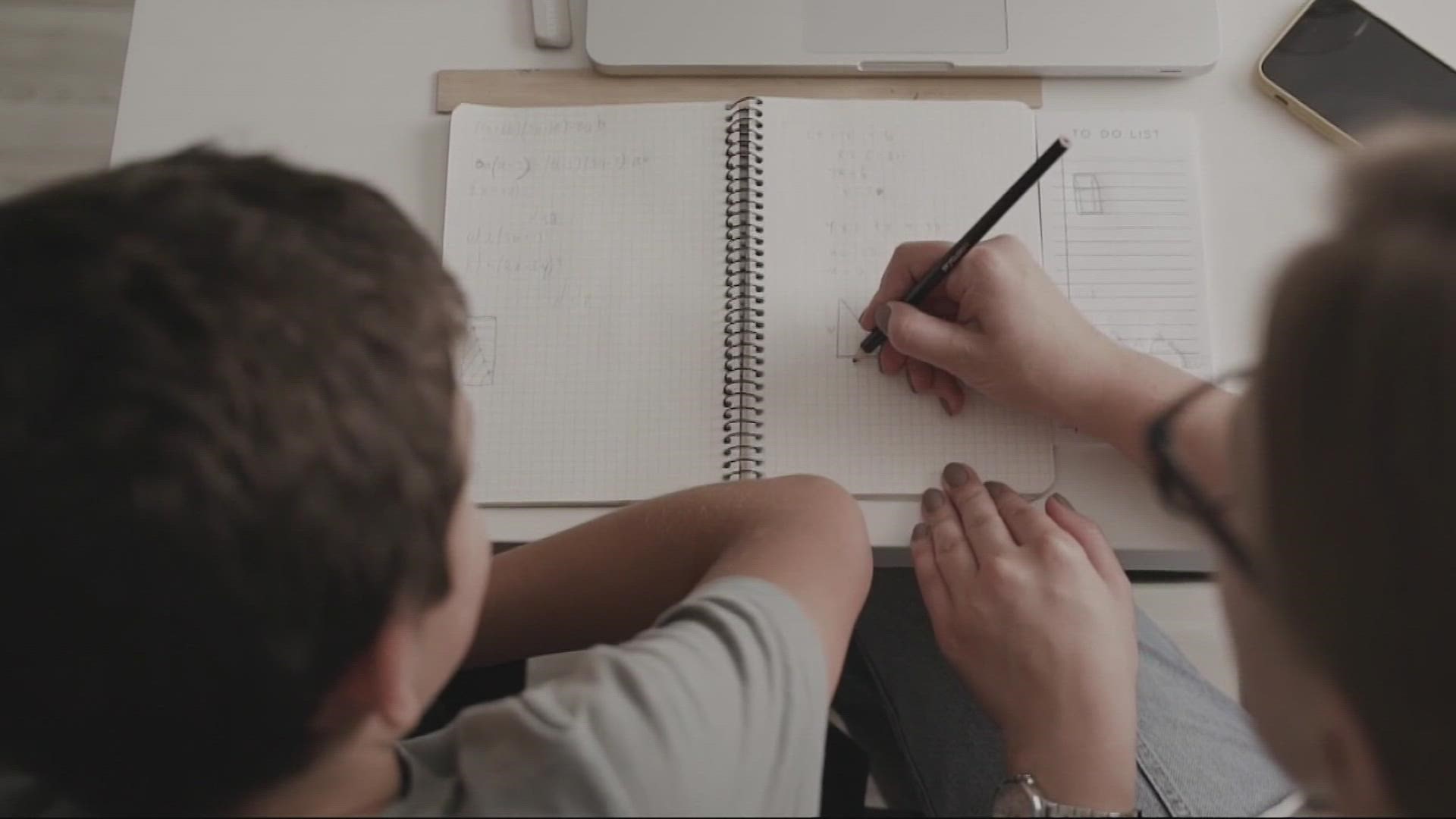PORTLAND, Ore. — As of Thursday afternoon, the latest weekly report from the State of Oregon shows 750 new cases in elementary kids with two in the hospital. Now with kids back in school, there's increased concern about the possibility of COVID-19 spreading in the classroom.
A number of parents have already had to quarantine their children. For some, all the quarantining and testing of students is frustrating and confusing. Parents have told KGW about a number of issues that range from a lack of learning while a child is quarantining to it being nearly impossible to find COVID tests in a timely fashion.
First, an update on Portland Public School's free COVID-19 screen testing
Right now school districts across Oregon are working with health officials to offer free COVID-19 testing. This week, Portland Public Schools started distributing consent forms for parents to opt into weekly COVID-19 screen testing for their kids. Next week, the first batch of forms will be sent to OHSU.
Then students whose families opted in are expected to get test kits in early October.
Other area districts, like the Beaverton School District, are working on similar plans. A spokesperson for the Beaverton School District that they should have test kits available by mid-October. District officials plan to send communication to families about the testing program on Monday.
Factors behind the push to test kids for COVID
Dr. Corey Fish, a pediatrician and the Chief Medical Officer at Brave Care, said there are a number of factors behind the push to test kids for COVID this year.
“The first one is that you know the jury's still a little bit out with delta," said Fish. "I think still the question hasn't been definitively answered about kids and are kids more susceptible. But what we're seeing without question is that there are more kids being affected, whether that's just because there are more cases overall or because it's specifically worse for kids. I think people are still trying to wrap their head around it to figure out."
He said another reason there is more of a focus on testing this year is simply because earlier in the pandemic, kids were at home. Now, many of them are physically back in school.
Of course, we're also approaching cold and flu season.
“Unfortunately there's just no great way, in kids, to tell the difference between COVID and now that we're getting into respiratory season, influenza and RSV (respiratory syncytial virus) and all of these other things that we see normally this time of year,” said Fish.
While Fish said it’s true that for the majority of children, COVID-19 can be mild, he said medical professionals are seeing more kids ending up in hospitals and ICUs with more severe complications.
Should parents get the vaccine for their kids when available?
Ultimately, he hopes once a vaccine is approved for kids 5-11 years old, that parents decide to get it for their children.
“One in 20 kids who end up in the hospital with coronavirus will have very serious and potentially permanent neurologic complications. So, it's like, if that's not enough motivation for folks to get the vaccine, I'm not sure what is,” Fish said.
Fish's perspective on the pandemic and health care industry
In addition, Fish talked about the trends he’s seeing in the health care industry as the pandemic drags on and also touched on conspiracy theories that are circulating.
“Masking, distancing, [are] all super important. But the reason that we are still having to do that is because of the vaccine hesitancy and that is the only reason,” he said.
“There’s this kind of change and trend happening in health care like I’ve never seen before. Where, you know, people are leaving health care […] We study and we go to school and we spend all this time trying to help people make really good decisions and you know all the conspiracy theory stuff and everything else that’s coming out, it’s really a huge bummer for those of us in health care.”

